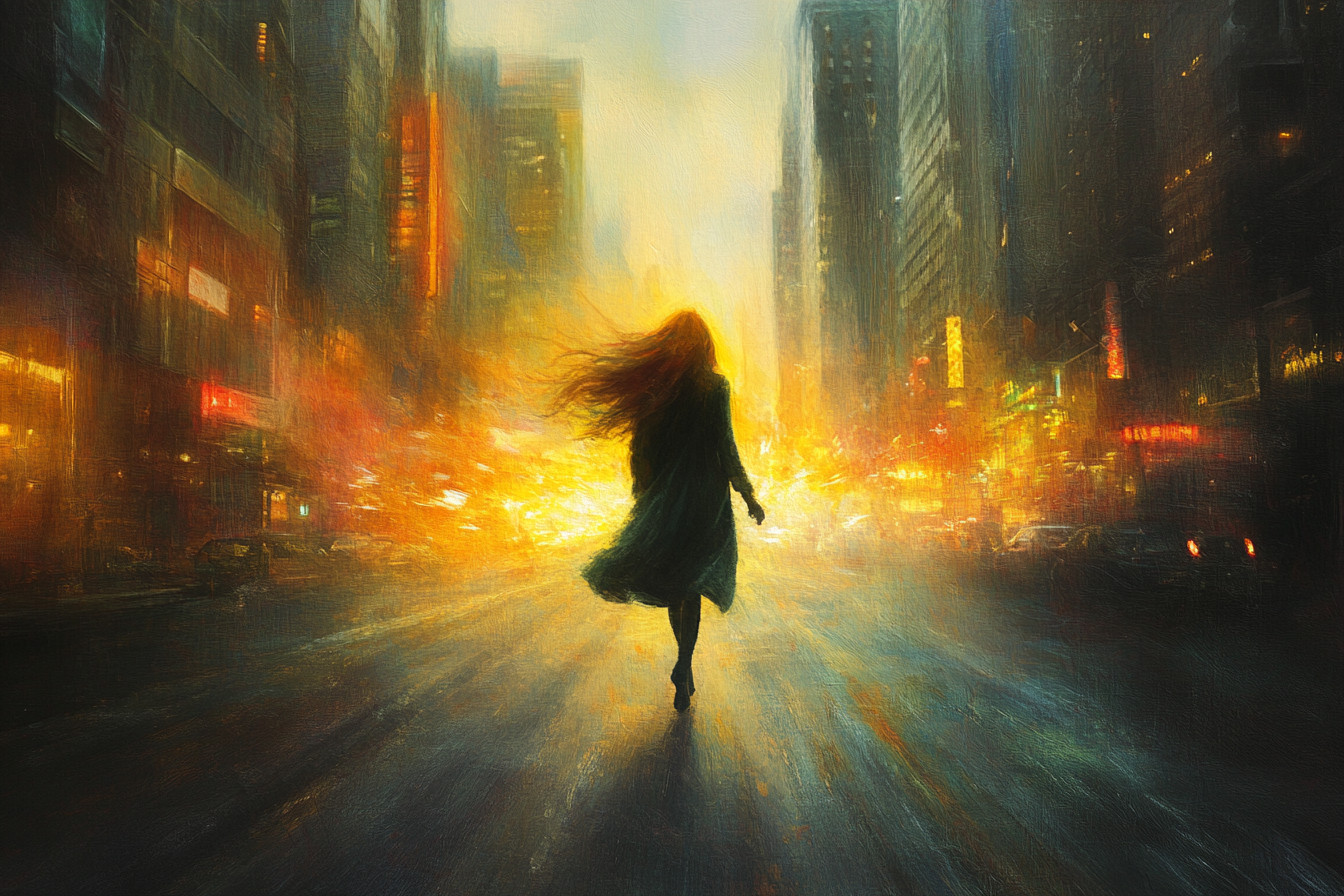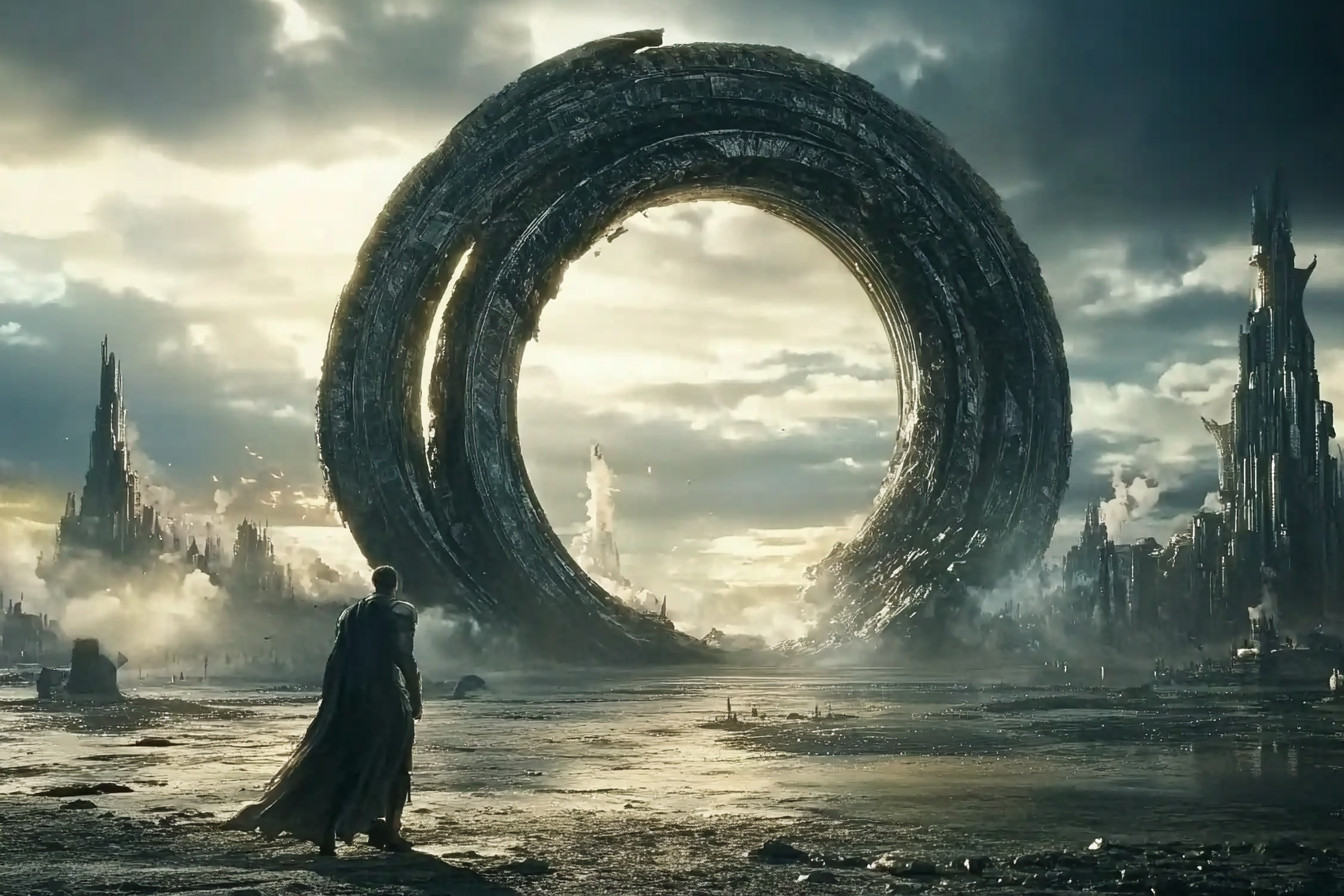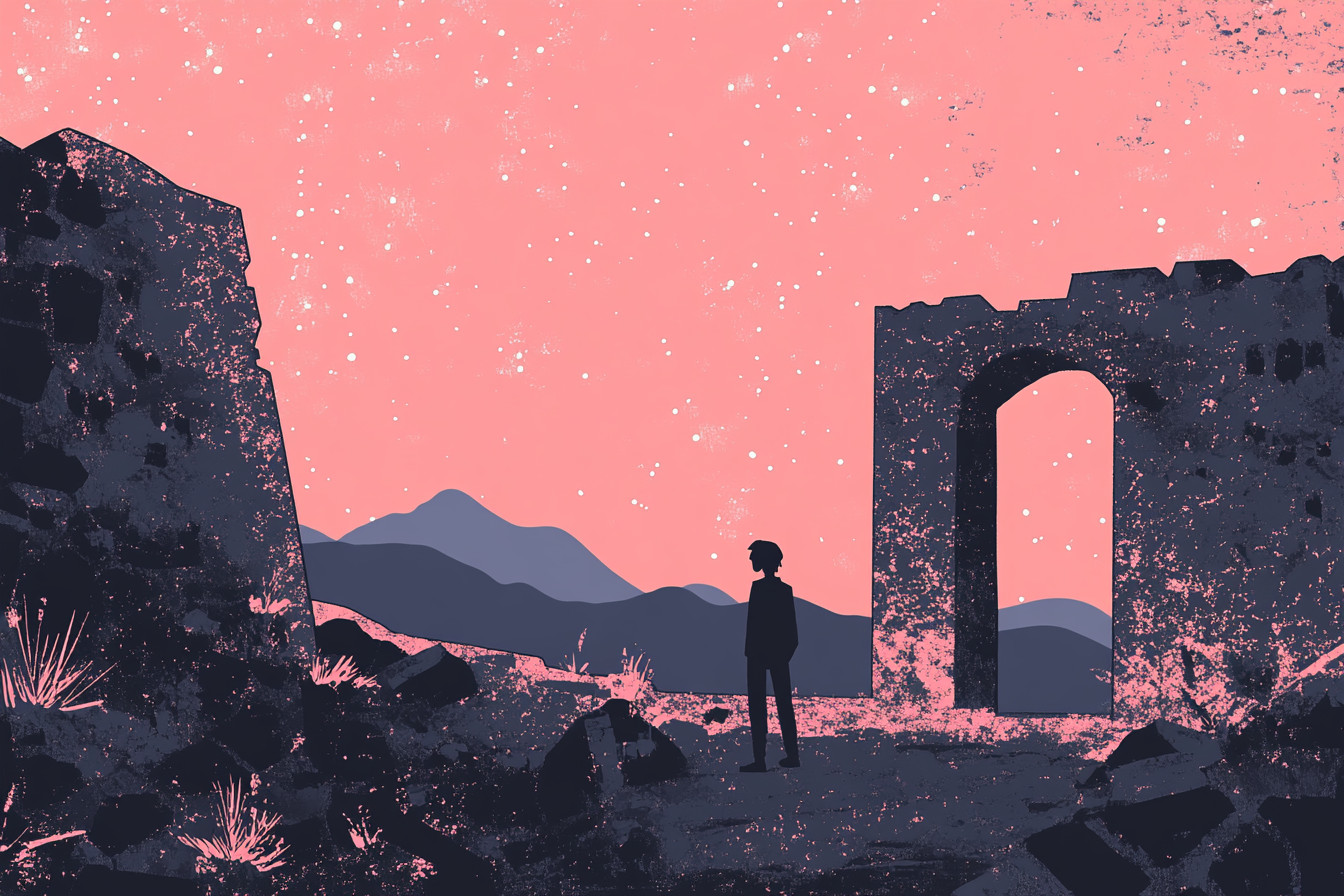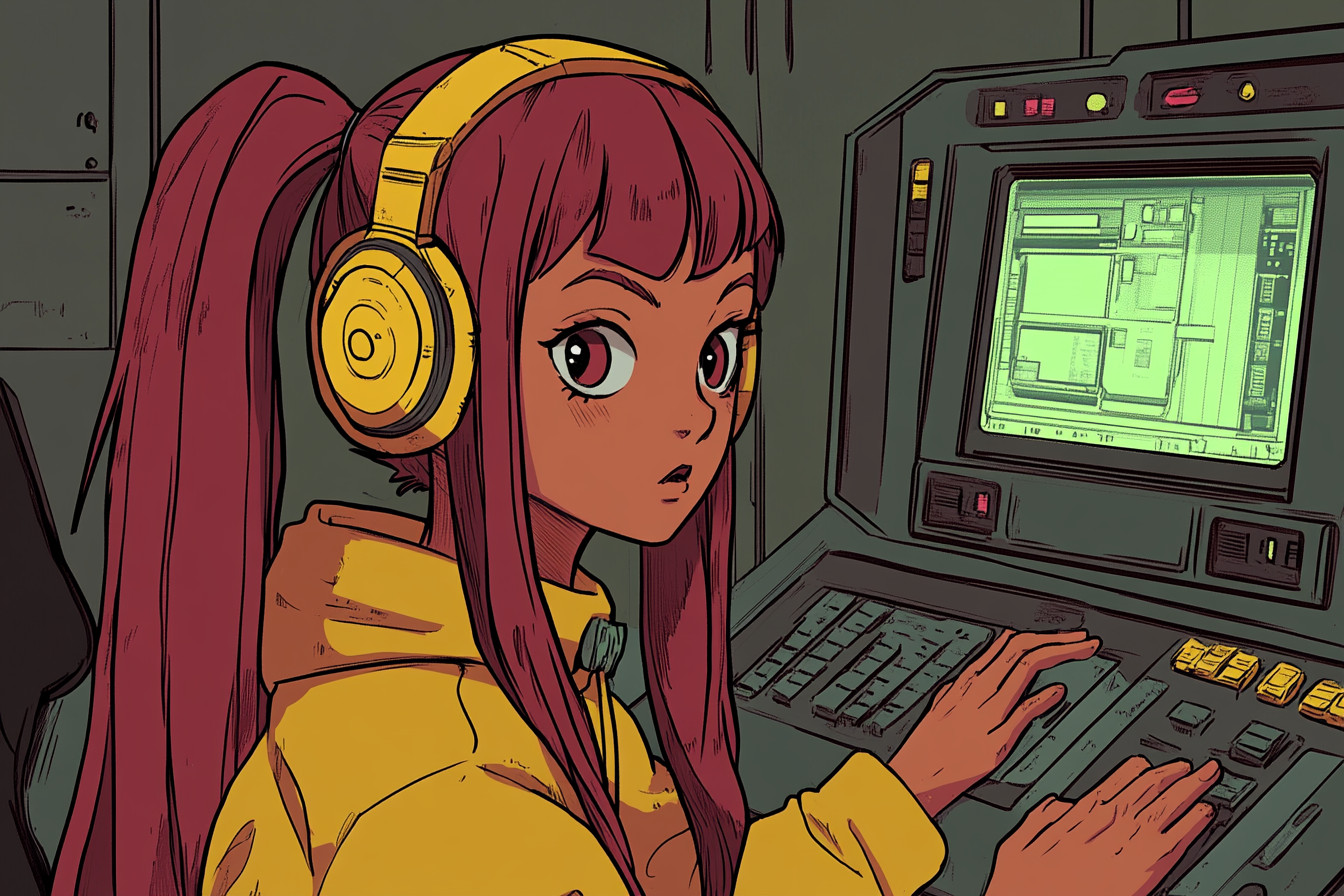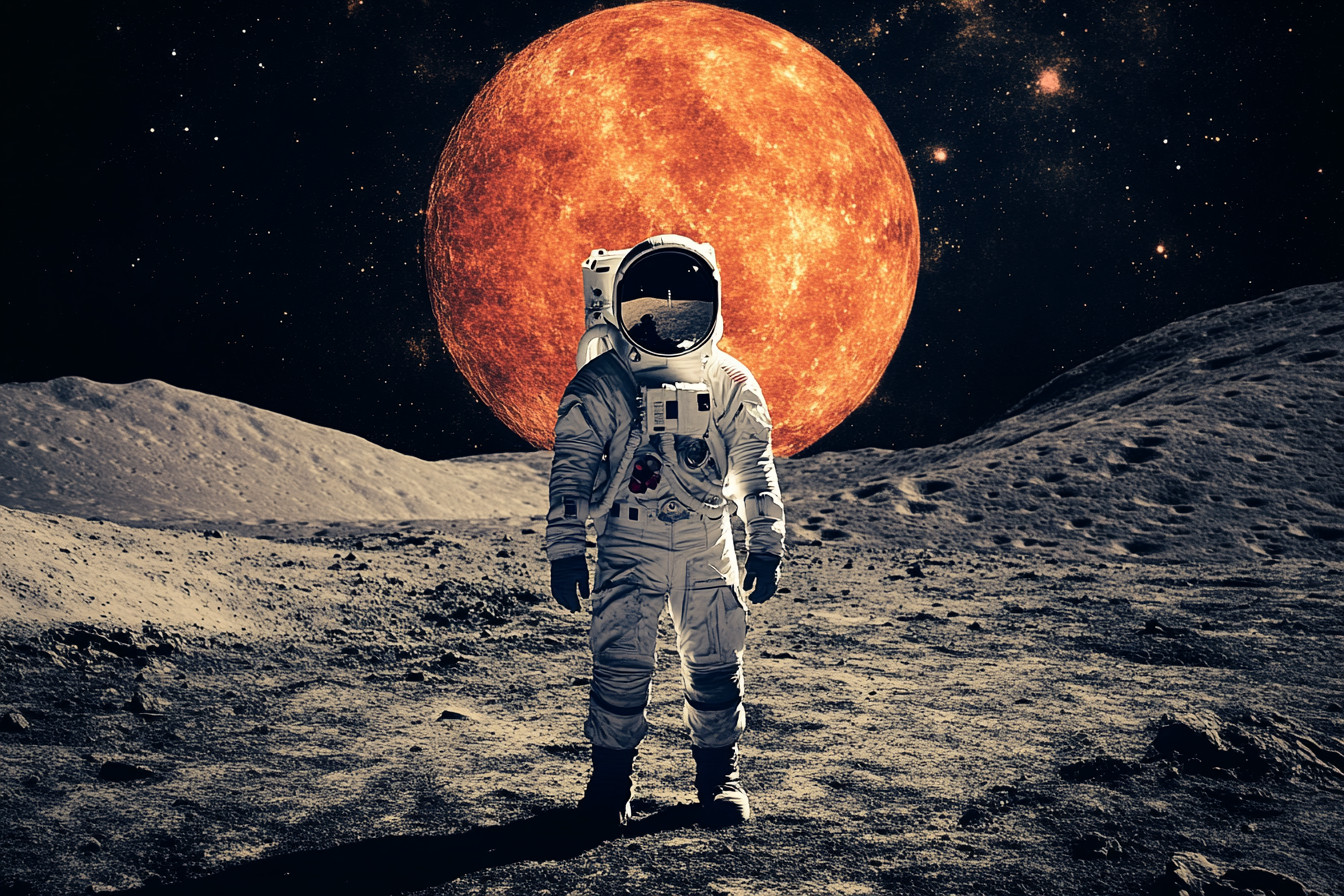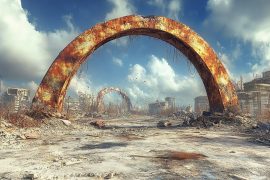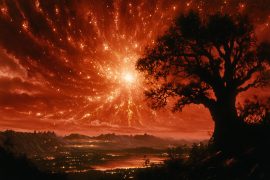After following a sci-fi series for several years, it can be bitterly disappointing how the plot resolves given all the time and effort one puts into the series. We fawn for an eternity over the characters, deeply cherishing them in all of the turns, space-time anomalies, and other quirks that the story contains. We are left aghast, oh so very aghast, with how the story concludes.
The immense conflict wrought upon beloved characters throughout the major stories of episodes tend to resolve in anticlimactic fashion, When the next installment, “the next generation,” “the next whatever,” or even “the next painfully predictable cash grab” wipes all prior content, viewers are left contemplating for what reason all those plot points were even strung together in the first place. Why is there some inexplicable need for the viewer to hear someone halfway through the shoddy writing ask, “Was there really not a better solution to the Big Problem offered that didn’t resort to overused plot differentiator number 12?”
The number of heated late-night debates I’ve had with other fans has surpassed the number of fingers on my hands. We come together to devise– at least in our minds– a more bearable alternative that wouldn’t tarnish the legacy of the characters crafted with such depth over the years. We do not– under any circumstances– want a solution that resembles a make believe outcome where everyone basks in the glory of unimaginative happiness, but rather something grounded with the weight of the character’s journey, assuming that we can still describe any piece of media claiming to be “great” science fiction with such barebones standards.
Explore with me some of the characters in science fiction who earned outcomes they did not deserve, whose fates continue to annoy us. We reflect on what made them such commendable masterworks, consider the reasons for the outrage regarding their demises, and, because I cannot help myself, ponder how these works of art could have been shaped to provide a more palatable ending. I invite you to share any of your thoughts or logic as we all know that we appreciate this community within the world of science fiction.
Characters Who Were Cheated – From Hopes That Were Not Met to Alternate Scenarios
Battlestar Galactica’s William Adama – A Peaceful Commander Who Deserved It
And there is Commander William Adama, the very soul of Battlestar Galactica. He is a leader you would follow anywhere, even into a black hole! Adama is stoic and unyielding and heard fiercely protective of those who serve under him. But, of course, the character is much more than simply a space military leader archetype. And in so many ways, Adama represents the idea of the series itself. He has to contend with pressures most of us can hardly imagine, and does his job with panache and presence. Because the only thing that could possible be worse than the No. 1 and No. 2 bad guys we are introduced to in the first two episodes of the series is having no one at the top to steer the last remnants of what is left of humanity on their desperate trek through the galaxy.
Nonetheless, as Battlestar Galactica was coming to an end, to put it mildly, Adama’s destiny is equally “meh” socially and unsatisfying in life. As if he is somehow paying for the sins of a character whom, we can all agree, did what needed to be done for him to have had any semblance of a life worth living. In the series finale “Daybreak,” Adama gets couped to a new planet – his personal domain of silence , which is almost Garden of Eden like, post humanity choosing to take a hard reset “soft” science ban free. Lawrence Welk would have enjoyed its peace, free of the “gadgets, gizmos, and space travel.”
Fan Wishes: A considerable number of admirers have suggested an alternate ending to the series where Adama does not choose to isolate himself but rather accept and revive the father-son bond which is filled with emotion that he has with his son. In this imagined synthesis, Adama instead brings the remaining crew members, not to some desolate rock in the middle of nowhere, but instead to “a community, or something about being in close quarters,” in the words of one fan. “To me this respects all of the season’s efforts without turning Adama into some anti-Moses character.”
From Doctor Who, Rose Tyler — A Love Story With A Bittersweet Ending
Now, let us shift our attention to someone like Rose Tyler who, in 2005, acted as the window to a new era of the Doctor Who for a whole generation that had missed it before and became the companion of the Ninth Doctor and later the Tenth Doctor. The relationship that developed between the Ninth Doctor and Rose was very close and, like many other relationships, it had aspects of a mother and child dynamic. The Ninth Doctor showed to her, perhaps he had suppressed a good deal of his feelings before meeting Rose, like sharing memories of his past and fantasies filled with a wonderful world of joy while spending time with her which was really special.
The sort of playful banter with which Rose and the Ninth Doctor interacted was charmingly mother-son like. Apart from that, Rose was far more than sidekick. She was The Doctor’s companion in and throughout many of his fantastic, yet dangerous, adventures.
Unlike her other adventures, in “Doomsday,” Rose is placed within a parallel universe, which is not how she would have liked it to be. Whereas this episode holds Rose captive in a world that anchors her to the Doctor’s absence, while eventually, it does gift her with a version of her future alongside his human form. For Pinks, the sense of closure isn’t quite there, and quite a few fans seem to agree.
This episode attempts to provide us with a happy heal-over that I don’t think is quite deserved. It seems as if the plot seeks to bind that duo because it wishes to reestablish the good-friend ethos that pervades this series, devoid of the more unsavory aspects of earlier seasons.
As far as fan theories go, Doctor Who’s Tenth Doctor era is full of them. One of the more popular ones suggests that the story could have found a way to end much differently—more creatively, really—had the writers this the audacity to stray away from the all too familiar ‘impossible love’ trope. Instead of placing both the Doctor and Rose in a parallel universe, why not have them meeting across said-universe? Their reunion need not be romantic. An odd form of closure for two who’s relationship, and resonance with the viewers, was inexplicably valuable could be the twelfth or eleventh doctor bobbling back into Rose’s life for a final whimsical adventure.
With the release of The Force Awakens, Finn seemed like he would be one of the more interesting characters in the new Star Wars trilogy. A reformed stormtrooper provided some new material for the franchise: a space soldier who did not storm a futuristic battleground but instead ran away, finding glory not in mainstream egress ports, but in courage wells. However, by the time Johnson’s second film was released, it felt like the thread guiding the filmmakers was somehow lost mid-way through the first movie.
The closing film threw Finn mostly to the back, focusing on Rey’s family tree and Kylo Ren’s redemption while neglecting Finn’s history and his defection. If there were to be hints of Finn having a strong connection with the force, none of them amounted to anything meaningful. Finn and Rey appear to share some deep interactions on Pasaana, but did he even try to communicate anything of value to her? If he did, what importance could it serve in time to come? Or is it simply going to be for the Finn we saw for the last two years— a shadow of existence, vague, neglected, and underexplored?
What the fans sought: An alternate version of The Rise of Skywalker that fully cultivates Finn’s relationship with the force. Imagine if, instead of being a dull leader, he had risen to command a new crop of youths existing in harmony with the force—youths, conditioned like him, to shun the First Order’s school of stormtrooper economics. That alone could have provided additional depth for the storyline, and considering it is Star Wars where the notion that the force doesn’t belong to a select few families is essential, would have been perfect.
Naomi Nagata From The Expanse: A Survivor’s Tale That Was Left Too Open
One of the most extreme characters in The Expanse – arguably the most extreme character – is perhaps best encapsulated through a single name: Naomi Nagata. She is brave, she is brilliant, she is dynamic and does so much throughout her life. No wonder she has captured the attention of so many fans. Still, she performs the role of a science woman. At least on the surface, one could assume there is a nagata aligned to the world of ex sci fi and science shows with a woman as a protagonist. But what seems to be slowly developing a trend among the characters designated as women of science in The Expanse: she is, at best, only an ally to most sci fi fans.
Though by no means is this the full story of Naomi, she does tell us a vital account of the story. Indeed, her character serves as an axis around which many pivotal theme that The Expanse grapples with revolve.
What Fans Wanted: The Expanse’s fans have collaborated to conceptualize a potential sequel that would trace the development of the Belt in the “post-Free Navy’’ period with Naomi playing a central role. While quite a few of the scenarios we came up with would have looked amazing on the screen, as a collective we consider the following to be plausible “future” fan service for the saga, “And for Naomi – the Belt.”
This story occurs the belts a few years after the season 6 finale “Babylon Ashes.”
John Crichton from Farscape – A Hero’s Journey With a Worthy Yet Absent Finishing Touch.
In Farscape, the quintessential fish-out-of-water plot revolves around John Crichton. An astronaut who got sucked out through a wormhole that led to a region of the galaxy leagues away from Earth has to face strange alien creatures and life-threatening situations. But there is more to it than just escaping danger. A struggle for survival becomes neotraditional with heroes like Crichton. With a distinguished American attitude marked by laughter or prickly sadness, he brings levity to the role. It seems to be some resolute and, at least in regard to how he came by the fact most men painted toy portraits of old Robin Hood, is Robin Hood-esque effusive and mildly scholarly assumption of command.
Some fans, however, criticized the Farscape: The Peacekeeper Wars miniseries for how quickly it seemed to conclude the character arc of Crichton. The miniseries was filled with action and drama, but still had to compress what could easily have taken a full season into just a few hours. That forced feeling—both of the plot and the characters—was something that annoyed many fans of the series. It was as if in the minds of some fans, what played out in the miniseries was a terrible canonical Farscape fanfiction come to life.
What the Viewers Yearned For: I mean, a bonus season would have been shortsightedly brilliant, but even just a handful of episodes would have been more than enough to allow them, and the narrative resources needed, to provide the character of Crichton with the gracious farewell he did not receive. Picture an entire episode dedicated to giving Crichton a break from his borderline endless attempt at recounting the stories ‘untold’ (ditto his Copernican revolution at the end of Season 4). Now try to envision what Farscape could have achieved—and was definitely capable of achieving—with the show’s trademark no-budget attitude it took toward everything else.
Why Closure in Science Fiction Is Important Why We Invest in Finales – It’s About More Than Simply Tying Up a Narrative
The beginning and middle of a story tend to hog the limelight and as a result, the end is barely given any thought or attention. This is true for endings within the Science Fiction genre as well. However, these endings are vital for achieving the sense of closure sci-fi fans look forward to. Given a chance to explore the futuristic and intergalactic worlds, so much investment is done by the fans, so much thought needs to be put into the final act. Everything that impacts “interpretation” greatly impacts the die-hard fans out there. Whether they be novels, graphic novels, or television programs, the universe’s audience craves understanding—closure in the movement from one part of the story to the next in a way that makes sense and resonates.
Sci-fi has its charm in dreaming about worlds where anything is possible. But not any kind of wrapping up will do. A good ending tends to be one where the plot, themes, and message is resolved. There is often an “I got some good out of this” moment during an ending, or character closure. Why do the good endings that resolve everything neatly and satisfyingly make us feel good? And why are these endings often overlooked until they aren’t there?
Stories don’t die as long as fan theories and alternative endings exist.
I guess, in a way, the fandom’s devotion serves to make science fiction appealing in the very lack of its crafting by offering support where the fans feel the creators of the stories make unjustified conclusions. Repeating commentaries of endless reviewers makes us wonder if liberation can ever be truly complete. Some science fiction stories can bring the so-called resolutions based on piecing together clues or plot hints throughout a saga’s telling. Fans go through the trouble of mopping up the creators puzzle pieces to make a game out of flushing outline hints throughout the saga. Fans defend the creators who seem to be stuck in a metaphorical limbo of half-finished work. In essence, narrative negation is realized by the commitment toward the creator’s vision through the work done by the fans.
The characters we discuss about in sciencefiction encapsulate alive way longer than their movies or shows ever could. Even if the story does not come to a satisfying conclusion (which is common), our tendency to make air quotes while conversing about it shows how much we cared about those characters. Let’s face it: those conversations are absolutely preserving science fiction culture in the year 2023!
The effects of the ending –or even the lack thereof– will certainly change basedon if the characters actively feature in our lives or not. For example, there are several hours we spend binging shows, where fictional characters coexist, and when they take over the wheel in the long stretches of the day, or when the viewer is momentarily too close to parting with reality. Repeated narrations have come true for several; fictional drives are interspersed with reality’s long stretches, weaved deep in the psyche, serving as an invaluable companion.
When an individual fails to receive a closure fitting to their part and contribution in our life story, and instead departs, not with drama or theatrics but instead with stray words, it can be a jarring emotional shock that resonates in an individual’s core.
This unique bond fuels my yearning for better endings; not only for my sake, but for those who needed more closure. These characters have contributed significantly to the narrative’s progression. Is it too much to grant them an ending that bestows some semblance of tranquility and joy?
The Reason We Will Continue to Pin Our Hopes on More Favorable Outcomes
Have we consolidated enough information? Possibly that the characters who do not receive an ending that is fitting, leave jaws dropped and hearts close to the very core? Perhaps even claiming that for us, these characters who have no choice but to suffer at the hands of the audience undergo some level of modifications to their fate, become the receivers of such merciless alterations because frankly speaking, they are deserving is what matters most. Or perhaps we ought to be surviving on the premise that as long as there are fans, there are people more than ready to concoct incredible scenarios that never realized, yet in the eyes of many, ought to have.
It matters not if you are a fan of Doctor Who, Farscape, or fervently enjoy Star Wars as we all collectively share a fandom that appreciates the intricate stories woven in all of these franchises. We analyze the plot lines, take issue with frustrating cliffhangers, ask aloud why our cherished characters ended their journeys in a limbo reminiscent of nowhere, and every now and then try to guess what went wrong on their journey. A set of mid-range tools and some average intellects is all that’s needed, and in about half an hour, we can craft a new storyline, assuming there is one or is never intended to be one; whether or not there is ever another one, we will always remember the characters of Farscape.
Now, if you want to share your spin on how you think Finn would go about leading his new order of Force-sensitive followers or how Adama would get a renaissance in his twilight years, we are always keen. In the world of science fiction, storytelling can be expressed endlessly, similar to a comic book that can perpetually be rewritten and reimagined ad infinitum; it’s a fandom that is sure to turn the universes we adore into driving forces of our imagination.


